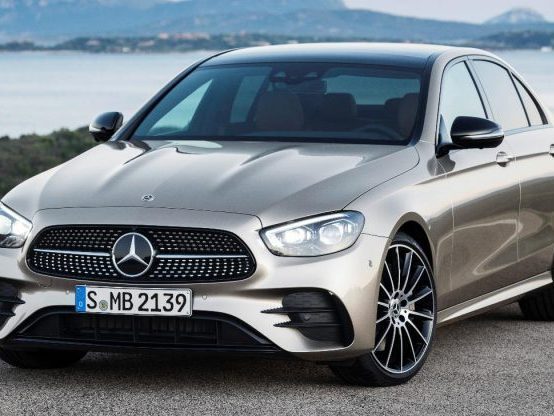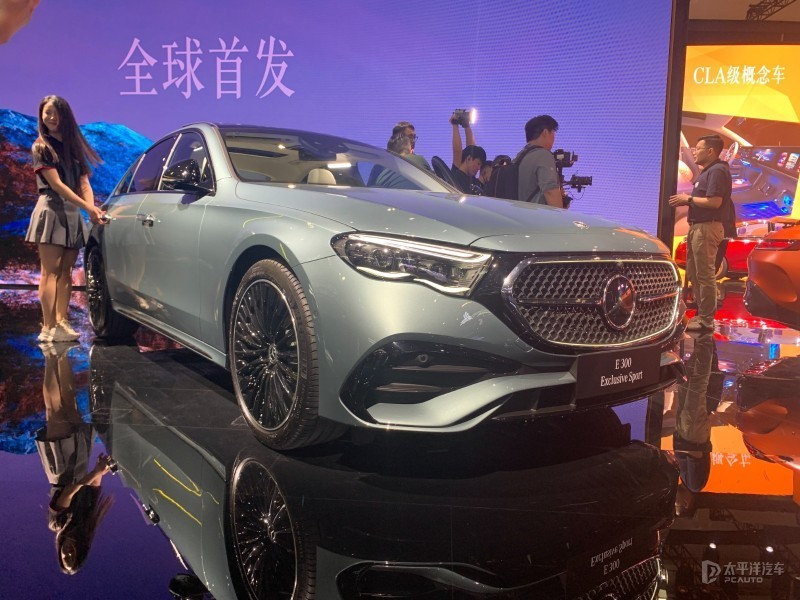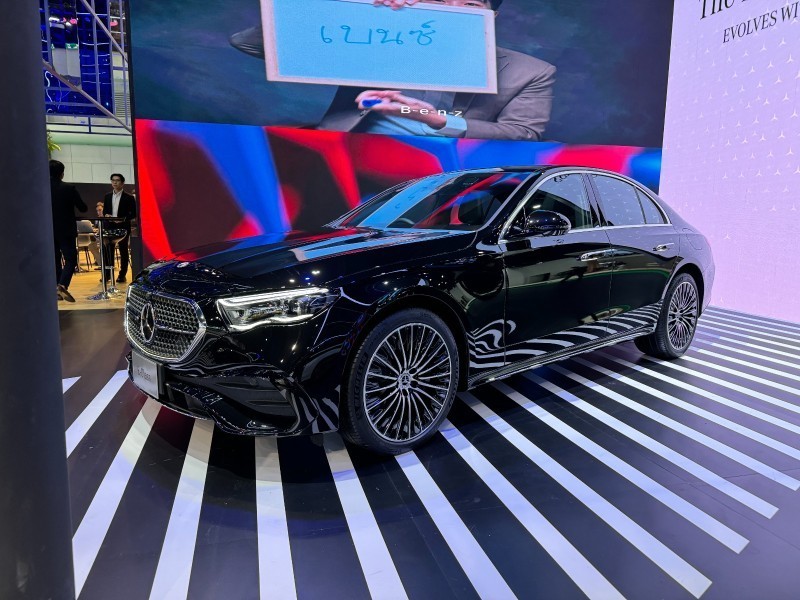Q
Is the maintenance cost of Mercedes E-Class expensive high?
The maintenance cost of the Mercedes-Benz E-Class is indeed higher than that of ordinary brands, which matches its position as a luxury vehicle. Taking routine maintenance (such as oil change and filter replacement) as an example, the cost at official authorized maintenance centers (such as Hap Seng Star or Cycle & Carriage) is approximately between RM 1,500 and RM 3,000 (depending on the specific model and engine type). For major maintenance (such as transmission fluid change and brake system inspection), the cost may reach RM 5,000 to RM 8,000. If it's the AMG version, the maintenance cost will be even higher because the prices of high - performance components (such as AMG - specific brake pads and high - performance oil) are relatively expensive.
In addition, Mercedes - Benz usually offers a Service Package, which allows you to get same maintenance cost for several years. It is recommended to ask the dealer when purchasing. In the long run, the E - Class has slightly higher maintenance costs compared to the C - Class (due to the larger engine and more expensive parts), but it is still lower than flagship models like the S - Class. To reduce maintenance expenses, you can choose an Extended Warranty or have regular maintenance at authorized centers to maintain the warranty eligibility and avoid the quality risks that may be caused by third - party repairs.
Overall, the E - Class has relatively high maintenance costs, but its luxurious experience and high - end after - sales service still make it very popular in the high - end commercial vehicle market in Malaysia.
Special Disclaimer: This content is published by users and does not represent the views or position of PCauto.
Related Q&A
Q
What is special about E-Class?
The Mercedes-Benz E-Class has many special features. In terms of appearance, it inherits the brand's sense of elegance and luxury. The newly designed front face is more aggressive, paired with delicate LED headlights. The increased body size optimizes the interior space, and the rear - seat legroom is more spacious.
In terms of power, there are various options, such as traditional turbocharged engines and plug - in hybrid systems. For example, the E200 offers 204 Hp + 320 Nm (the electric motor provides 23 Hp + 205 Nm), and the E350e offers 313 Hp+550 Nm (the electric motor provides 129 Hp+440 Nm), which can meet the needs of different consumers.
The interior maintains a high standard and is equipped with a large number of high - tech features. For instance, the new MBUX infotainment system is both convenient and practical.
The safety and assistance configurations are also very rich. It comes standard with a series of systems such as ABS anti - lock braking, vehicle stability control, and active braking, as well as practical functions like automatic parking, which enhance driving convenience and safety.
Q
Which model of E-Class is fastest?
Among the E-Class models availlable, the top speeds of three models - the 2021 Mercedes-Benz E-Class E300 AMG Line, the 2019 Mercedes-Benz E-Class E 300 Exclusive Line, and the 2019 Mercedes-Benz E-Class E 350 AMG Line - all reach 250 km/h, making them the fastest. The 2024 Mercedes-Benz E-Class E200 has a top speed of 240 km/h, the 2024 Mercedes-Benz E-Class E350e has a top speed of 236 km/h, the 2021 Mercedes-Benz E-Class E200 Avantgarde has a top speed of 240 km/h, and the 2019 Mercedes-Benz E-Class E 200 SportStyle Avantgarde also has a top speed of 240 km/h. The top speed doesn't solely depend on power factors such as engine power, it also
depends on vehicle's aerodynamic design, tire grip, suspension tuning, etc., . These fastest models usually achieve a good balance in power output and overall vehicle tuning, enabling them to reach a relatively high top speed.
Q
Which one is more expensive, C-Class or E-Class?
The Mercedes - Benz E - Class is usually more expensive than the C - Class, as they belong to different vehicle positioning levels. Take the price of vehicles in 2024 as an example. The price range of the C - Class (such as the C 200 or C 300) is roughly between RM 280,000 and RM 380,000, while the E - Class (like the E 200 or E 300) typically falls within RM 380,000 to RM 550,000.
The price gap between the two models mainly reflects in the body size, interior luxury, technological equipment, and power configuration. As a higher - level executive sedan, the E - Class excels in terms of space, comfort, and driving assistance features. Additionally, the E - Class offers high - performance AMG versions (such as the E 53 or E 63), with prices exceeding RM 700,000. In contrast, the AMG C 63 is usually priced around RM 650,000, still lower than the top - of - the - line E - Class models.
Car buyers should make their choices based on their budgets and needs. If you prefer a spacious and comfortable luxury experience, the E - Class is a better choice. On the other hand, the C - Class is more suitable for consumers who prefer a compact and sporty style and have a relatively limited budget.
Q
Where is Mercedes E-class made?
The Mercedes E-Class is produced in Bremen, Germany. Mercedes-Benz is a German brand with its headquarters in Stuttgart, Germany. The Bremen plant in Germany has approximately 12,500 employees and is responsible for manufacturing models such as the Mercedes-Benz C-Class and E-Class. In addition, Mercedes-Benz has factories in multiple locations around the world. The models produced in different regions may vary in terms of power configuration and other aspects due to market demands. For example, the Mercedes E-Class in the Malaysian market is equipped with a 2.0T turbocharged engine paired with a 9G Tronic automatic transmission, and also comes with either a 48V mild hybrid system or a PHEV plug-in hybrid system.
Q
Is the noise insulation of Mercedes-Benz E-Class excellent?
The Mercedes-Benz E-Class employs excellent noise insulation measures to reduce the intrusion of outside noise. The body structure is well - designed, and high - quality materials are used for the body and doors to block noise. For example, thick glass and well - sealed door rubber strips help prevent wind and road noise from entering the cabin.
In terms of the engine, the powertrain is carefully tuned. Whether it's a gasoline engine or a hybrid system, both of them operate smoothly, and the noise level is relatively low. Advanced engine technology and noise insulation measures in the engine compartment also help create a quiet driving environment.
In addition, the suspension system is tuned to not only provide a comfortable driving and riding experience but also minimize vibrations and related noise that might enter the cabin. Moreover, components such as the electronic parking brake and the 9 - speed automatic transmission with smooth shifting operate quietly, further enhancing the overall quietness of the vehicle.
This excellent noise insulation makes the Mercedes - Benz E - Class an ideal choice for those who pursue a quiet and peaceful driving experience.
Q
Which model year of E-Class is the most reliable?
It's hard to directly determine which model year of E-Class is the most reliable because each have their own advantages. The 2024 Mercedes-Benz E-Class is quite advanced in terms of technology and configuration. It has good fuel economy, and its 48V mild hybrid system is also excellent, ensuring its reliability. This vehicle comes standard with a number of active safety systems and has a large number of airbags, providing all-round protection for passengers and drivers. The interior is equipped with a variety of comfort features, such as power-adjustable seats and automatic air conditioning, which reduces the probability of malfunctions caused by the aging of components.
For earlier models, such as those from 2019 to 2021, the technology is mature and stable. Over the long - term development, the Mercedes - Benz brand has continuously optimized and improved the core technology of the E - Class. The key components of these models, like the engine and transmission, are of reliable quality and have been tested by the market for a long time. Many users have reported that there are rarely any major malfunctions under normal maintenance. In short, the models from each year have high reliability. When buying a vehicle, you can make a choice based on your budget, preference for configurations, and the actual inspection results of the vehicle.
Q
Is Mercedes E-Class a good family vehicle?
The Mercedes - E-Class sedan can be an excellent family vehicle, which combines comfort, safety, and performance. The interior is usually exquisitely decorated with high - quality materials. The seats are comfortable and can be electrically adjusted for both the driver and passengers. The rear seats offer ample space, making it comfortable for children or adults even on long - distance trips.
The safety features are comprehensive. It is equipped with multiple airbags, a stability control system, and advanced driving assistance systems such as active braking, lane departure warning, and blind - spot monitoring. These functions help prevent accidents and ensure the safety of your family on the road.
In terms of performance, the E - Class offers a variety of engines to meet different needs. Whether you prefer a fuel - efficient hybrid model or a more powerful gasoline - engine model, you can find a suitable option.
However, it also has drawbacks. The maintenance cost may be relatively high, and the cargo space of some models may be limited, especially when you need to carry large items or a lot of luggage for a family outing. But overall, for families seeking a comfortable, safe, and stylish vehicle, the Mercedes - E - Class is a reliable choice.
Q
What's the service life of the Mercedes-Benz E-Class ?
The service life of the Mercedes-Benz E-Class can vary significantly due to multiple factors. With proper maintenance and good driving habits, it can be used for over a decade and cover a high mileage. Some owners have reported that their E-Class vehicles can run smoothly for 15 - 20 years. Regular maintenance, such as changing oil, filters, and timely checking of components, is crucial. Mercedes-Benz vehicles are of high manufacturing quality and their components are durable. However, the electrical and interior systems may develop problems over time. For hybrid models, the lifespan of the battery is a factor to be considered. Generally, the battery's service life of an E-Class hybrid can last about 6 - 10 years. But this can be affected by driving style, climate, and charging habits. Aggressive driving, extreme temperatures, and frequent short trips may shorten the overall service life of the vehicle. In general, the better you maintain your Mercedes-Benz E-Class, the longer it will serve you reliably.
Q
Which one is better, Mercedes C or E-Class?
Both of them have their own advantages. The C-Class is more suitable for drivers who prefer sporty handling, a compact body, and have a relatively limited budget (starting from around RM 280,000). Its dynamic design and precise driving experience make it ideal for city commuting. On the other hand, the E-Class (starting from around RM 380,000), as a mid - to large - sized executive sedan, focuses more on spaciousness, luxury comfort, and a business usage. It comes with more luxury features for the rear seats and is suitable for family users or business people. In terms of performance, the AMG version of the C-Class (such as the C 63) puts more emphasis on track handling, while the E-Class AMG (such as the E 53) strikes a better balance between performance and comfort. Additionally, both of them are equipped with the MBUX intelligent system, but the E-Class usually offers more advanced driving assistance features (such as a higher - level autonomous driving assistance). If you favor agile driving and cost - effectiveness, the C-Class is a great choice. If you value a luxurious riding experience and business needs more, the E-Class is more appropriate.
Q
Is Mercedes E-Class safe?
The Mercedes-Benz E-Class is truly a safe vehicle. It comes with a comprehensive suite of safety features including the Anti-lock Braking System (ABS), which prevents the wheels from locking up during braking, and the Electronic Stability Program, which helps maintain the vehicle's stability under challenging driving conditions.
In addition, there are multiple airbags. Depending on the model, it may have 7 or 9 airbags, which can protect the driver and passengers, providing protection against head and side collisions. Features such as Blind Spot Assist, Lane Departure Warning System, and Active Brake Assist/Active Safety System further enhance safety. The Blind Spot Assist warns you when it's unsafe to change lanes. The Lane Departure Warning System alerts you when the vehicle drifts out of its lane. The Active Brake Assist/Active Safety System can automatically apply the brakes to avoid or mitigate collisions.
Moreover, the parking imaging system, like the 360-degree parking imaging system available in some models, helps with safe parking and maneuvering. With these safety features working in tandem, the Mercedes-Benz E-Class offers a high level of protection for the occupants on the road.
Popular Cars
Model Year
Car Compare
Car Photo
Latest Q&A
Q
How does the 2022 Odyssey compare to other minivans?
The 2022 Honda Odyssey stands out among mainstream family MPVs with several competitive advantages. Its 3.5L V6 engine delivers 280 horsepower, paired with a 10-speed automatic transmission that offers smoother shifts and better fuel efficiency than many rivals still using 6 or 8-speed gearboxes.
The magic seat design is a game-changer—the second row slides sideways up to 16 cm, while the third row folds flat with one-touch functionality, making seat reconfiguration far more flexible than conventional MPVs. Perfect for families constantly juggling cargo and passenger needs.
On the safety front, the Odyssey comes standard with Honda Sensing, including adaptive cruise control and lane-keeping assist—features that often cost extra in competing models. For entertainment, it’s equipped with a rear-seat entertainment screen and CabinTalk, solving the classic "backseat shout" problem on long trips.
A standout detail? The low floor height—12-15 cm lower than most MPVs—makes entry and exit noticeably easier for kids and elderly passengers. While many MPVs prioritize space at the expense of driving dynamics, the Odyssey’s double-wishbone rear suspension (a rarity in this segment) actually improves handling stability.
Maintenance intervals align with local habits—recommended every 10,000 km or 6 months—keeping ownership costs reasonable. All in all, it’s a thoughtful package that doesn’t force families to compromise.
Q
Is there a recall on Honda Odyssey 2022?
At present, Honda has not issued any recall notice for the 2022 Odyssey. This model has shown good overall reliability performance in the local market. However, it is recommended that car owners regularly check the latest safety notices through Honda's official website or authorized service centers, as there are occasional service activities for specific components worldwide. For example, some markets have undergone preventive maintenance for the electric tailgate control module or sliding door sensor. For the daily maintenance of MPV models, special attention should be paid to cleaning the electric sliding door tracks and updating the multimedia system software, which can affect the user experience. If any abnormal conditions are found in the vehicle, such as warning lights on the dashboard or electronic device failure prompts, it is best to contact the nearest authorized repair point for professional inspection as soon as possible, after all, the seven seater model has more complex electronic devices than ordinary sedans. In addition, it is recommended that car owners develop the habit of regularly checking the condition of the vehicle, including tire wear, brake system status, etc. These large family cars usually carry heavy loads, and the wear and tear of chassis components will be relatively faster.
Q
What should I pay for a 2022 Honda Odyssey?
The used car price of a 2022 Honda Odyssey can vary depending on its condition, mileage, trim level, and warranty coverage. Typically, you can expect prices to range between RM150,000 to RM220,000, with well-maintained, low-mileage higher-spec models leaning toward the upper end. On the other hand, base trims or those with higher mileage will be more affordable.
Before buying, it’s always a good idea to get a thorough inspection from an authorized used car dealer or a trusted seller to check for accident history and mechanical issues. The Odyssey is a popular family MPV, known for its spacious cabin, comfortable ride, and reliable performance—especially its versatile Magic Seat system and efficient powertrain, making it great for long trips.
When shopping, don’t just focus on the price—consider warranty coverage and after-sales service to avoid future headaches. If your budget allows, you might also want to explore newer models or even a brand-new unit for better features and longer warranty protection.
Q
What are common problems with the 2022 Odyssey Elite?
The 2022 Odyssey Elite delivers solid performance as a premium minivan, though some owners report recurring quirks. The infotainment system occasionally freezes or lags—particularly when using Apple CarPlay or Android Auto—often requiring a reboot to resolve. Another hiccup involves the power sliding doors' sensors misreading obstacles during wet weather, usually fixed by wiping the sensors clean.
Mechanically, a handful of drivers notice slight low-speed gearshift hesitation from the 9-speed transmission, but a dealership software tweak typically smooths it out. While the 3.5L V6 packs plenty of punch, stop-and-go traffic tanks fuel efficiency; keeping air filters and spark plugs in check helps. Honda did improve cabin quietness over the previous gen, though tire hum still reaches the third row at highway speeds—swapping to touring tires helps if you're picky about noise.
One nitpick: The Honda Sensing suite's automatic braking tends to be jumpy in crawling traffic, triggering false alerts. You can dial down its sensitivity via the touchscreen. Pro tip: Given the Odyssey's heft, brake pads wear faster—stick to 10,000-mile inspections.
Q
How long will a 2022 Honda Odyssey last?
The 2022 Honda Odyssey can typically last between 200,000 to 300,000 kilometers—or even longer—with proper maintenance and reasonable use. Its actual lifespan depends on driving habits, maintenance frequency, and road conditions.
Under the hood, the Odyssey comes with Honda’s proven 2.4L i-VTEC engine or a hybrid system, both known for their durability. Staying on top of oil changes, transmission fluid swaps, and suspension upkeep will go a long way in keeping it running smoothly. The body has solid rust protection, but if you’re near the coast, an extra undercoat wouldn’t hurt to fight off salt and humidity.
One thing to note: The hybrid’s battery pack usually lasts 8-10 years, though replacement costs have been dropping. Every 50,000 km, it’s smart to check the drivetrain and steering system, plus replace wear-and-tear parts like the timing chain when needed. Easy driving—avoiding hard acceleration and heavy loads—helps preserve the engine and transmission.
Resale value is strong for an MPV, especially with clean maintenance records. Stick to the service schedule, and most owners can get 15+ years out of it without major repairs.
View MoreRelated News

Mercedes-Benz E-Class: Timeless Exterior That Radiates Elegance
Kevin WongMay 12, 2025

2024 Beijing Auto Show: Mercedes-Benz E-Class Standard Wheelbase Version Priced from 459,200 RMB
AshleyApr 28, 2024

Bangkok Motor Show 2024: New Mercedes-Benz E-Class launched, priced at 3,990,000-4,250,000 Thai Baht
Kevin WongMar 27, 2024

Mercedes-Benz invests in an autonomous driving technology company under Geely named Qianli
AshleySep 25, 2025

Benz launches its first car equipped with solid-state batteries, capable of traveling 1,205 kilometers on a full charge
WilliamSep 10, 2025
View More

















Pros
Cons